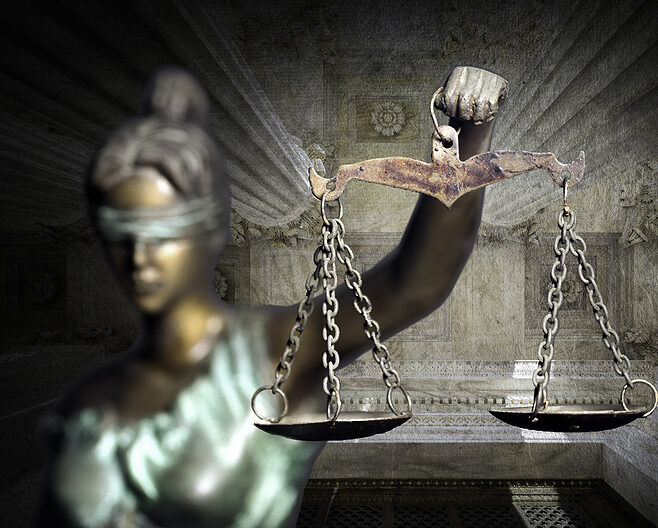It has been commonplace throughout the year to hear that “lawfare” corrupts our legal system. This accusation has grown even louder since former president Donald Trump was convicted of 34 felony counts in a criminal trial conducted under New York state law.
Notably, the House of Representatives speaker, Mike Johnson, released a statement immediately after Trump’s guilty verdicts were read in court. “This is a shameful day in American history,” he said. “The American people rightfully see this is lawfare, and they know it is — and dangerous.”
However, the real danger may be in the persistent and widespread misapplication of the term “lawfare” to raise doubts about the ability to receive justice under our cherished rule of law system. It’s been in place since established by the U.S. Constitution more than 200 years ago. Those who are found guilty of crimes are guaranteed full due-process protections — including indictments based on probable cause; arraignments to learn the charges and enter pleas; rights to retain counsel, present evidence, and cross-examine witnesses; and to have a verdict rendered by an impartial jury of peers and appeal an adverse verdict through all levels of the judiciary.
Also, defendants cannot be compelled to testify and are protected by several communication privileges, including those covering attorneys, spouses and pastors. This comprehensive approach is applied whether the defendant is Republican politician Trump, a prominent Democratic Party donor such as Harvey Weinstein, or anyone else.
Federal, state and local prosecutors always have had discretion about which cases to bring to trial and also what plea bargains may be acceptable. Their decisions are made by taking several factors into account, including financial and resource limitations, the personal history and characteristics of the alleged perpetrator, and the interest of serving justice in their communities. In doing so, they are guided by Congress and other legislatures that enact various criminal laws with varying penalties. If they stray too far from these laws or behave in a manner that violates the rights of defendants, the verdicts may be overturned by higher courts, and the prosecutors may be sanctioned under the rules to practice law at issue.
Tagging a prosecution that adheres to all of these protections as “lawfare” certainly is permitted under the First Amendment unless it promotes violence or interferes with the administration of justice. But using it as a rhetorical cudgel may have real long-term consequences, undermining public confidence in the rule of law, which is a bedrock of our democracy.
To date, “lawfare” seems to conform to the definition that the Merriam-Webster dictionary has established for another word that has gained rapid contemporary currency — “truthiness.” It defines this as “truth that comes from the gut, not books” and “the quality of preferring concepts or facts one wishes to be true, rather than concepts or facts known to be true.”
Alas, truthiness is here to stay in a nation with growing misinformation magnified on social media. But there is no good reason that “lawfare” also should become embedded in our collective lexicon. It’s time to press delete on this weird way to denigrate the rule of law that protects us all.


